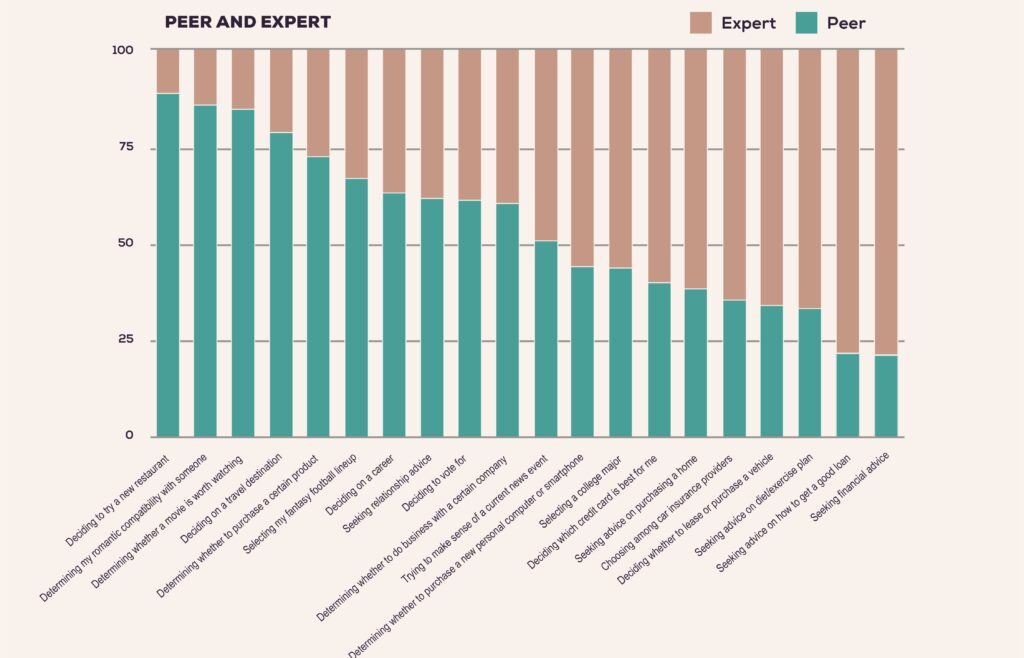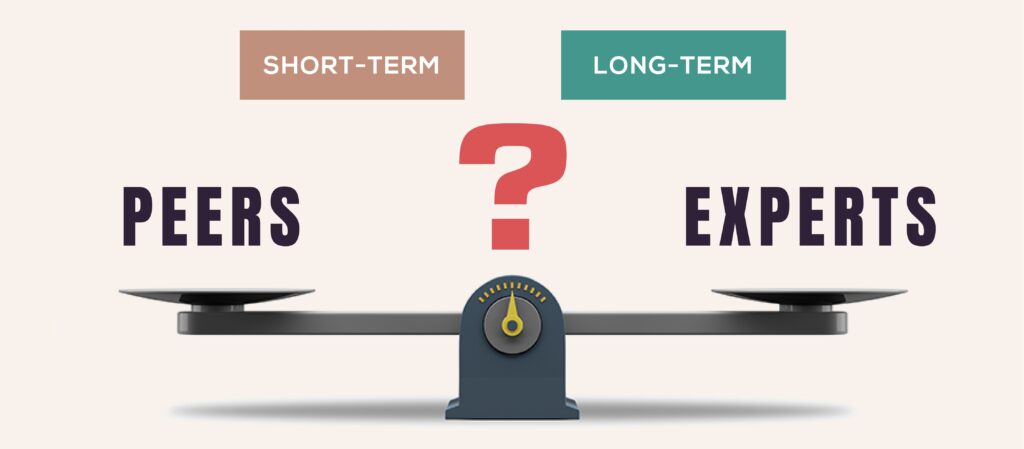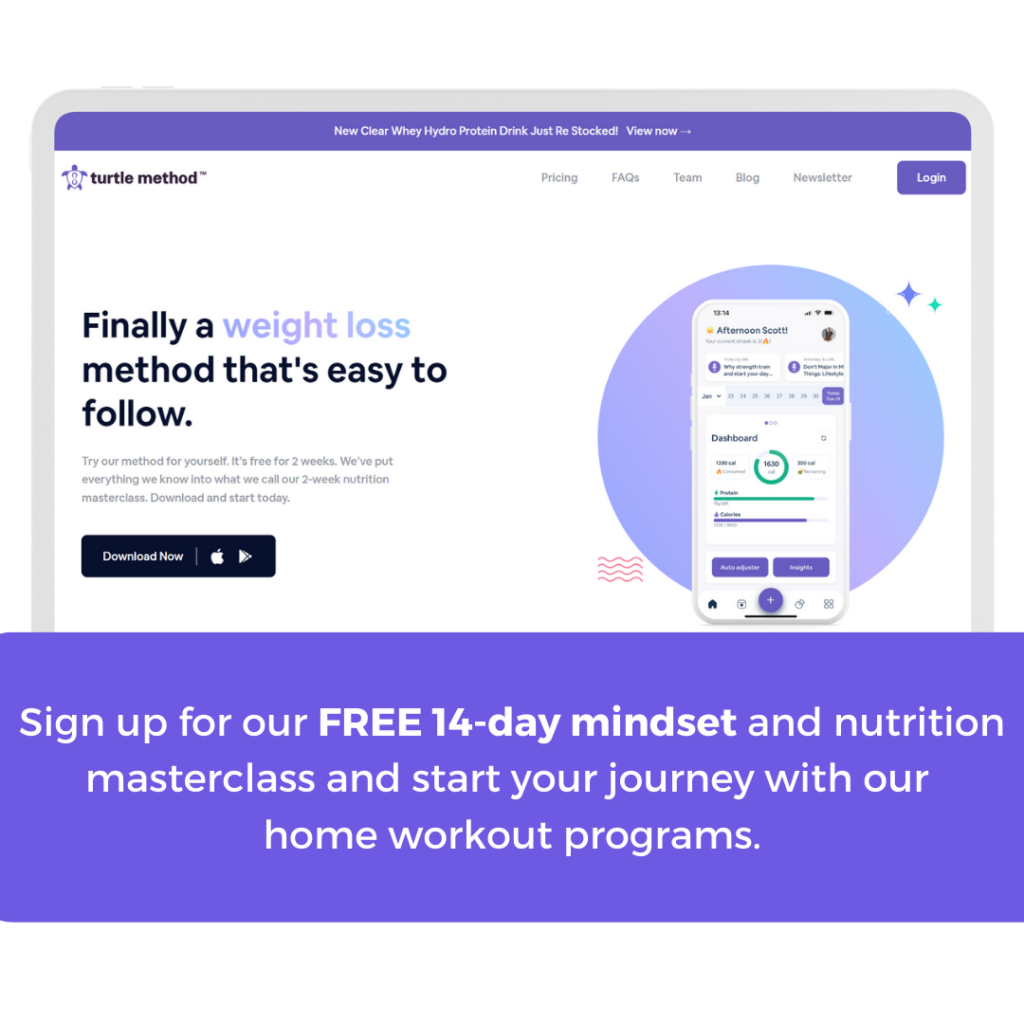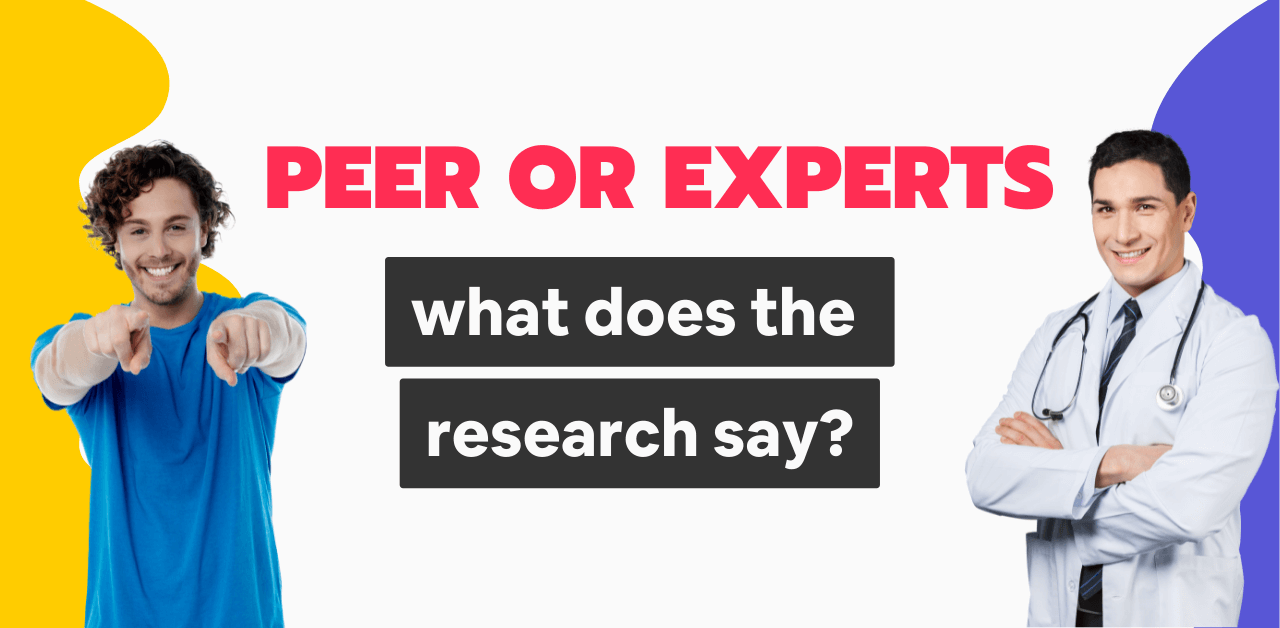A 2016 survey posted 20 hypothetical decisions to 500 people. In each case, the respondent was required to complete a statement (e.g., When deciding to try a new restaurant, I am more likely to trust) by selecting either a peer or an expert.

THE SMALLER/MORE FUN THE INVESTMENT, THE MORE WE TRUST OUR PEERS
🍽 Choosing a New Restaurant:
Peer 88.34% > Expert 11.66%
❤️ Determining Romantic Compatibility:
Peer 85.66% > Expert 14.34%
🎬 Seeing a Movie at the Theatre:
Peer 84.31% > Expert 15.69%
🏖 Choosing a Vacation Destination:
Peer 78.50% > Expert 21.50%
💅 Purchasing Goods and Services:
Peer 72.19% > Expert 27.81%
🥅 Picking a Fantasy Football Lineup:
Peer 66.54% > Expert 33.46%
WITH MEDIUM-TERM (OR SEMI-SERIOUS) CONSEQUENCES, WE WEIGH EXPERTS AND FRIENDS MORE EVENLY
FAVOURS PEERS
💼 Choosing a Career:
Peer 62.74 > Expert 37.26%
👩❤️💋👨 Seeking Relationship Advice:
Peer 61.30% > Expert 38.70%
🗳 Voting:
Peer 60.87% > Expert 39.13%
📋 Doing Business with a Company:
Peer 60.20% > Expert 39.80%
📰 Making Sense of Current Events:
Peer 50.39% > Expert 49.61%
FAVOURS EXPERTS
💻 Buying a Personal Computer or Smartphone:
Peer 43.73% < Expert 56.27%
🎓 Choosing a College Major:
Peer 43.57% < Expert 56.43%
💳 Applying for Credit Cards:
Peer 39.61% < Expert 60.39%
🏠 Buying a Home:
Peer 38.13% < Expert 61.87%
WHEN LONG-TERM/FINANCIAL CONSEQUENCES ARE INVOLVED, WE TRUST THE EXPERTS
🥗 Choosing a Diet/Exercise Plan:
Peer 32.94% < Expert 67.06%
💷 Seeking Financial Advice:
Peer 20.87% < Expert 79.13%
💸 Getting Advice on a Loan:
Peer 21.57% < Expert 78.43%
🚗 Vehicles:
Peer 33.79% < Expert 66.21%
🔧Selecting a Car Insurance Provider:
Peer 35.04% < Expert 64.96%
After analysing the results on a relative scale (how they relate to one another), they found that the average persons bias toward or against an expert or a peer is dependent upon a number of factors in no particular order:
•Relative Size of the Investment
•Length of Our Decisions Consequences
•Relative Size of the Knowledge Gap
•Level of Perceived Fun Involved
•Decisions Affecting Our Health
•The Power of Word of Mouth
•The Power of Social Media
•Trustworthiness of the Expert
•Trustworthiness of Our Peers
EXPERIENCE SERVICE
When consumers were looking to purchase an experience service, such as movies, food or a haircut, they were more favourably swayed by peer review.
An experienced service is one that you can evaluate confidently because you have done it many times, like going to a movie or restaurant.
CREDENCE SERVICE
When consumers were looking for a credence service, such as a tax accountant, lawyer, specialist doctor or financial planner, they tended to rely more on expert reviews.
By definition, credence services are those that consumers have difficulty evaluating as they tend not to be knowledgeable about them or do not encounter them very often.
CONCLUSION
When our decision is high-investment (of time, money, or energy), has lengthy consequences, or presents a sizable knowledge gap between us and the expert, we tend to lean on the expert.
Meanwhile, when our decision involves more short-term consequences and fun or relies heavily on word of mouth, we trust our friends.

NEXT STEPS
Navigating the world of health and fitness is no easy task, and it’s not one you should have to do alone.
At Turtle Method, we’re your expert guides in this journey, here to provide knowledge and tools that truly transform your life.🏋️♀️🥗
Whether it’s high-stakes health investments or day-to-day decisions, we’ve got your back! 💪💡
Intrigued? Why not try us out with our absolutely FREE 14-day Nutrition and Mindset masterclass?
No card is required! Just pure, transformative knowledge tailored to you.
Take that first step into a healthier lifestyle. Make your health a priority, not an afterthought. Are you ready for a positive change?
Click here for the masterclass

